Posted: August 30th, 2010 | Author: Finn | Filed under: Features | Tags: Dave Mothersole, Detroit Techno, Interview, Rewind, sounds-like-me.com | No Comments »
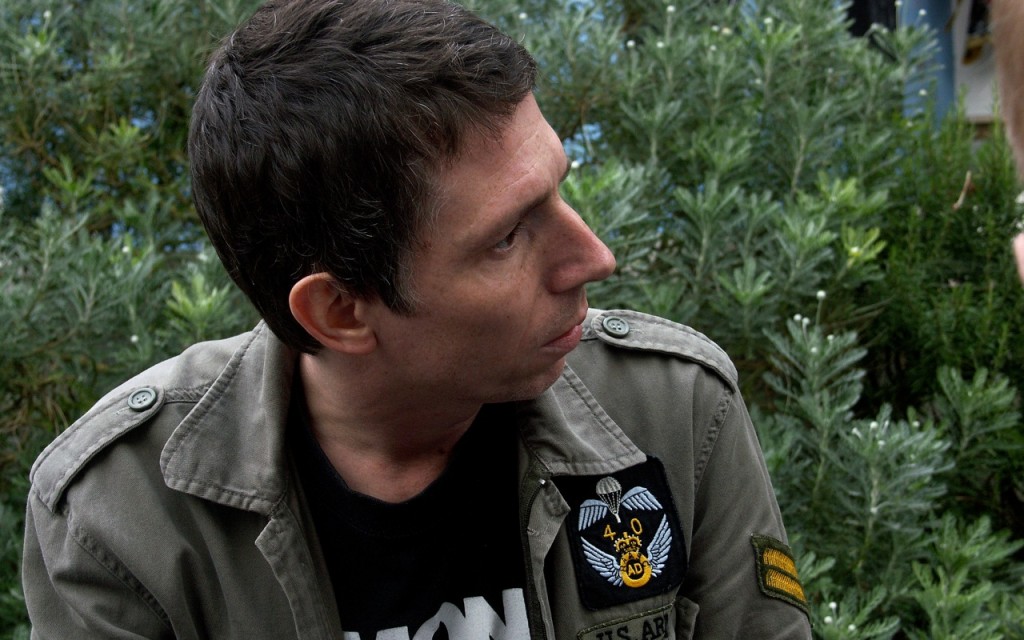
In discussion with Dave Mothersole on “Techno! The New Dance Sound Of Detroit” (1988).
You wrote in a recent article about the roots of the music played in Goa that you came back to the UK from there and found acid house in full swing. Did that connect with what you heard in India, or was it something else entirely?
It was the very start of acid house. I got back from India in March 1988 – Shoom was still at the fitness centre in Southwark (although I never went) and a month or two later Spectrum opened at Heaven on Monday nights.
It was different from what I’d experienced in India. In some ways it was more tame as people had to go back to work or college or whatever after the weekend or on a Tuesday morning after Spectrum, where as in Goa partying was a full time occupation for most people and therefore more extreme. Goa was like Mad Max with palm trees and techno – almost totally lawless in those days, so nothing compares to it really. I’d been there the previous season (86 / 87) too and I’d come back with all these stories about freaks dancing all night to music that sounded like one long track – like all the best music you’d ever heard with all the crap parts taken out. How it didn’t stop all night and how everyone was freaking out to it on acid and on this new drug called ecstasy. I think my friends back home all thought I was mad, but when acid house came out they were like ‘ok, I get you now’. So I was pleased that they finally knew what I was on about. There were things I didn’t like though, like the MCs. Partying in Goa was like a mystical, very psychedelic experience. Almost a spiritual thing and it was all about getting inside the groove and letting the music take over, so to have some guy shouting ‘hands in the air’ every few minutes as everyone faced in the same direction was a bit distracting. So in that way it was different.
The music was totally different too. The influence of the soul scene (where most of the DJs came from) was very strong so there where a lot of song based tracks with very soulful vocals. The themes were different as well – the famous Martin Luther King speech over Mr Fingers; Ce Ce Rogers ‘Someday’; ‘Promised land’ – these were all Black American themes – songs about the struggle for liberation and freedom. They translated perfectly to multicultural, 80’s England though. Before acid house black and white kids didn’t mix so much on the dance floor, there were exceptions but on the whole the clubs were either separate or divided. Acid house changed all that overnight and these songs, with lyrics about reaching the promised land and living together as one family had a very powerful resonance with the audiences. I think it was a tremendous relief for my generation to finally come together in this way. And this applied not just to the divisions between black and white, but also to class divisions and those that separated the various different youth cults. It was an amazing time – an entire generation taking the same drug at the same time. Listening to the same music, feeling the same emotions. My friends all went from wearing designer clothes and hanging out at the pub to clubbing every weekend in dungarees, purple kickers and long sleeve tops and hoodies with peace signs, smileys and flowers and stuff on them. Some of them even quit their jobs and started throwing parties, selling drugs, DJing – anything they could do that would let them carry on partying. It was a huge change and it happened really fast. By the summer of 88 loads of people were into it and come the summer of 89 it was massive. Huge parties, every club in the country playing house music, office workers out on Friday shouting ‘mental’, mainstream compilation albums full of acid house hits and 10 year old kids dressed like ravers.
Was it like hearing the roots in Goa, and then back in the UK, acid house seemed to be the next step musically?
I wouldn’t say the next step from Goa, as the scene in Goa existed in it’s own little bubble. Culturally, I was very pleased that we were the first country to take the concept of dancing to electronic music on ecstasy, and push it straight into the mainstream. This wasn’t a new concept – people had been doing it throughout the 80’s in Chicago, New York, in Dallas (at the Stark Club), in Ibiza and of course in Goa – but we kind of democratised it. You didn’t have to be a freak in India, a New York club kid or a jet set Ibiza type anymore. You could be an ordinary kid, you know, from pretty much anywhere in the UK. That was really cool.
Musically, house had been popular in England since 85 / 86. ‘Jack Your Body’ was number one in the pop charts in 86 for example, and ‘Love Can’t Turn Around’ was top five in the same year. So I was already familiar with house music and indeed it’s roots as I’d been into the soul scene before and had grown up dancing to records like D-Train’s ‘You’re The One For Me’, ‘Beat The Street’ by Sharon Redd and Sinnamon’s ‘Thanks To You’. And then the whole electro thing hit big in England, so yeah, it was the next step musically for sure, but it was ecstasy that made it explode in the way it did. Much as I was familiar with it though, house music could still be shocking. I remember standing in the queue outside Spectrum for the first time and hearing this thunderous acid track booming out of the club and thinking ‘fuck me, this music is dark’.
On the whole though, the music in Goa was far more foreign to me. I lived in Italy as a boy and went on holiday there most summers right up until I went to India, so I was familiar with italo disco, but that was my only reference point. That an a few Front 242, Yello and Nitzer Ebb records my brother had. It might sound strange but until acid house broke, European club music was very rare at parties in England. After acid house that all changed, first with stuff like A Split Second and Code 61, then later with all the R&S and Music Man stuff and after that the Frankfurt stuff and whatever. Pre acid house though, only a few gay clubs played euro beat (as we called it) so hearing it in Goa – particularly in the psychedelic way they played it there – was a complete revelation to me. Read the rest of this entry »
Posted: August 16th, 2010 | Author: Finn | Filed under: Features | Tags: Interview, Mike Thorne, Rewind, sounds-like-me.com, The Doors | No Comments »

In discussion with Mike Thorne on “Strange Days” by The Doors (1967).
Were you a Doors fan since their debut album, or was “Strange Days” the album that got you into their music?
I heard their first album shortly after release in 1967 and thought it astonishing. There was a presence and directness to the songs and the playing that was so fresh and new. Also, the sound and production were exceptional – everything still sounds so clear and present.
What drew you to them in the first place, especially compared to other rock groups of that era? What made them special? Was it Jim Morrison, the musicians, or their peculiar moody and dark approach to rock?
The band were clearly a distinctive group of talented people, interacting very constructively, and delivered the noise and force that’s always been attractive. They were one clear pole. In the days when music mattered, you were either a Beatles or a Stones person, with Pink Floyd or Soft Machine. There’s a parallel contrast between the Jefferson Airplane and the Doors. Even though I liked much of their output, the Airplane could be ‘nice’ in the unthinking hippy way in times when we were all feeling our way. Much of their output didn’t have anything like the power of Somebody To Love or White Rabbit, and could be downright sappy. The Doors always played rough and direct. More recent public polarities include the Blur/Oasis media circus, but that wasn’t so much about stylistic contrast. Read the rest of this entry »
Posted: August 9th, 2010 | Author: Finn | Filed under: Features | Tags: Ian Curtis, Interview, Joy Division, Ken Vulsion, Rewind, sounds-like-me.com | 1 Comment »
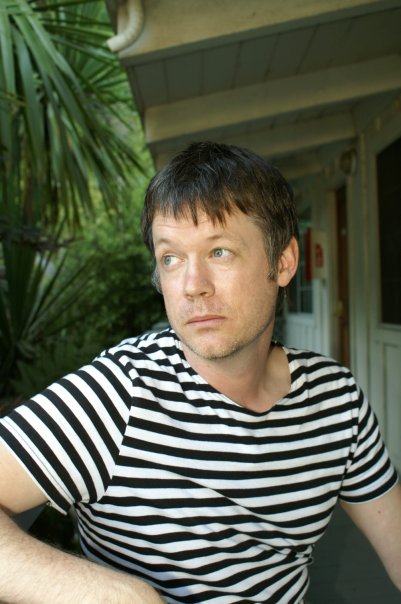
In discussion with Ken Vulsion on “Love Will Tear Us Apart” by Joy Division (1980).
How did you first come across “Love Will Tear Us Apart”? Was it love at first sight the time it was originally released, or did you get to know it later on?
I grew up in a sleepy part of New York State. There was little access to new, alternative music there in the 80’s. Every Tuesday there was a New Wave radio show on the Ithaca College radio station, the DJ was Mike Weidner. He played “Love Will Tear Us Apart” on that show, which I recorded to cassette. This would have been in 1981 or 82. It was love at first listen.
The song is generally considered to be one of the best songs ever written. Did you have the notion that this song is exceptional, or was it just another song you liked very much?
It is exceptional. The newness and truth has never faded. Read the rest of this entry »
Posted: July 26th, 2010 | Author: Finn | Filed under: Features | Tags: Interview, Juan Atkins, Model 500, Rewind, Serge, sounds-like-me.com | No Comments »
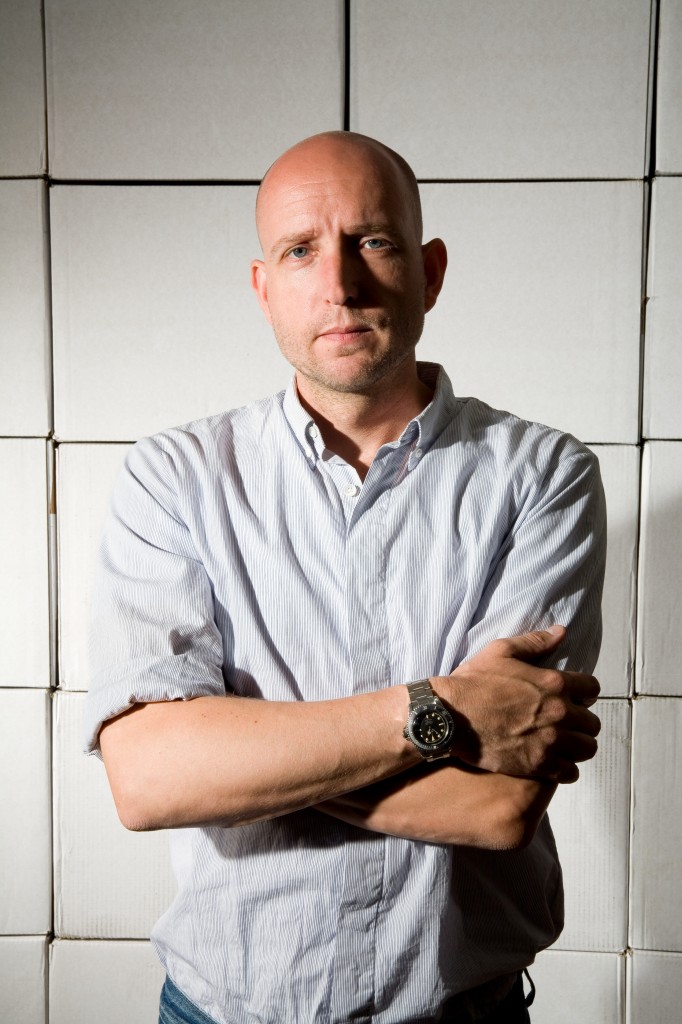
In discussion with Serge on “Ocean To Ocean” by Model 500 (1990).
I assume you were already familiar with Juan Atkins when the “Ocean To Ocean EP” was released in 1990. He was the first of the Detroit techno originators to release a record. Was he also the first of them you heard?
I am not sure… probably yes. But it could also have been the first Transmats of Derrick May. It was around ‘87 when I heard the first techno and this came out in 1990.
What makes this record so important for you? Are there special moments and memories attached to it?
It is just one of the best records Juan Atkins did, and one of the first records where techno became techno, where it became a form of art, and not just a tool to make people dance like disco, and like what house and techno was in that period, but an expression of feelings and emotions in an creative sophisticated and highly skilled way. You also hear this on other records from that 1989 and 1990 period, but somehow this one is one of my most favourite releases. Read the rest of this entry »
Posted: July 19th, 2010 | Author: Finn | Filed under: Features | Tags: Interview, Johnny Dynell, Rewind, sounds-like-me.com | 1 Comment »

In discussion with Johnny Dynell on “Jam Hot” by Johnny Dynell and New York 88 (1983).
In 1980 you started your DJing career in New York’s seminal Mudd Club and then you played every club important to the downtown scene in the following years. Is “Jam Hot” the sum of what you experienced as a DJ?
The opposite, actually – “Jam Hot” was very near the BEGINNING of my DJ career.
Would you say that some clubs you played at were more relevant for the sound of “Jam Hot” than others?
Danceteria is where “Jam Hot” was born and I DJed there but it was really all the discos and latin clubs like La Escuelita and G.G. Barnum’s that inspired me. In fact, on the back cover of “Jam Hot” is a picture of my beautiful wife Chi Chi sitting in the famous swing at G.G. Barnum’s. Read the rest of this entry »
Posted: July 7th, 2010 | Author: Finn | Filed under: Features | Tags: Alan D. Oldham, Interview, Playing Favourites, Resident Advisor | No Comments »

Weather Report – River People ( CBS, 1978)
You once told me that you were raised on jazz fusion.
I was. That was the kind of music of my early and mid-teenage years. In those days that was grown people’s music, it was very sophisticated. If you wanted to feel cool and grown up and everything, you were into Weather Report and Chick Corea. Lenny White, who drummed for Chick Corea’s band Return to Forever, was one of my all-time favorites. This song, “River People,” was from Mr. Gone and Mojo used to play it every night. He really made a hit out of a track.
Would you say that Mojo kind of planted a seed in some techno heads with this music?
I would say so. Mojo, for the black community, was it. And this was in the pre hip-hop days where black people listened to everything in Detroit when I was growing up. It was that open atmosphere that allowed Detroit techno to form I think. And Mojo was definitely ground zero for the black community. I mean this guy would play The Isley Brothers, Prince, Alice Cooper, Weather Report. He was the first DJ to play B-52s in Detroit. He broke a lot of music to the black community that we would have never heard.
What was the main inspiration of the things that Mojo played for the first wave of techno producers in Detroit?
I would say the real ground zero for this music was Kraftwerk. Which Mojo also used to play. I was in high school—I’m really dating myself [laughs]—and they released “Man Machine” and “Numbers” back-to-back in America. In Europe, there was a gap, but in America they released those two records almost at the same time. That made a really big impact.
I played this because I wondered if there is some kind of connection between a lot of Detroit techno records and jazz. Juan, of course, said “Jazz is the teacher” at one point, and there are a lot of harmonies in Detroit techno that are pretty jazzy, really complex. I was wondering if Weather Report was the source for this connection.
I think it’s a source, but not the source. I think that Detroit techno came from a lot of different influences. You have to remember that, at the same time, Parliament/Funkadelic were big. So you had a lot of futuristic connections with those guys; Mothership Connection was a big thing. Detroit was a huge melting pot. If you look back, it’s pretty incredible. Everything now is just so market-tested.
Nitzer Ebb – Join In The Chant (Mute, 1987)
That was a classic. There used to be a club named Todd’s in Detroit. It was the big new wave punk rock bar in the ’80s. The main DJ was Charles English, and he had the new stuff all the time. When I was in college we used to go every Thursday. He broke that out, and that was it. I was like, “Wow, who are these cats?”
Later, I was hanging out with Derrick May over at his place. Derrick had just gotten back from London, and he was a pop star. I was doing a radio show at the time and he gave me the double pack, saying “Hey man, take this and play it tonight.” He was in with Mute, and they were giving him everything. I still play it out today, the original version.
I don’t know how much influence it had on Detroit techno, but back in those days we were listening to everything. So when Nitzer Ebb came down the pike, it was like, “Oh, that’s really good.” There was a radio show called Brave New Waves out of Canada on the CBC and we used to hear them play Nitzer Ebb.
This track is from 1987, when you began your own radio show, Fast Forward on WDET. That was a really important year for you.
Yes. I had done the artwork for Derrick [May]’s “Nude Photo,” got my radio show. The night of my first broadcast, I went over to Derrick’s place, and he gave me all these records. He said, “Play these.” All of these records are what turned out to be the first techno records, a bunch of white labels. I was playing Detroit techno, what was then industrial and EBM, jazz fusion, a little hip-hop. WBLS, Brave New Waves, Mojo; those guys were my influences. I would go to see Charles play on a Thursday night at Todd’s and buy those records and play them on Friday night on my show.
How did you get the show?
Well, I was an intern at the station the summer before. I was putting the records in order. I started talking to the program director, and told her how much I was into Lenny White. She was like, “You know who Lenny White is?” I was super young compared to her at the time. So I said, “Yeah, one of the greatest fusion drummers to walk the Earth. Lenny White, Tony Williams.” She was impressed, and she asked if I had a demo tape. Fusion jazz got me the job, so that’s why I kept playing it. It was a whole mish-mash of genres, though.
Were the listeners appreciating that, or did you get criticism for being so eclectic?
I was on super late. It was from 3 AM to 6 AM. The graveyard shift. People dug it, they dug it right away. I’ll never forget playing “Acid Tracks” from Phuture, and some guy called me on the phone and was going insane. “What is this called? What kind of music is this?” It was the early days of electronic music, so nobody knew anything.
In those pre-internet days, doing research wasn’t easy.
Luckily, I worked at radio stations. So they had all of these libraries where you could go in and listen to whatever you wanted. Read the rest of this entry »
Posted: July 5th, 2010 | Author: Finn | Filed under: Features | Tags: Interview, Parker, Rewind, Siouxsie & The Banshees, sounds-like-me.com, The Creatures, Zerocrop | No Comments »
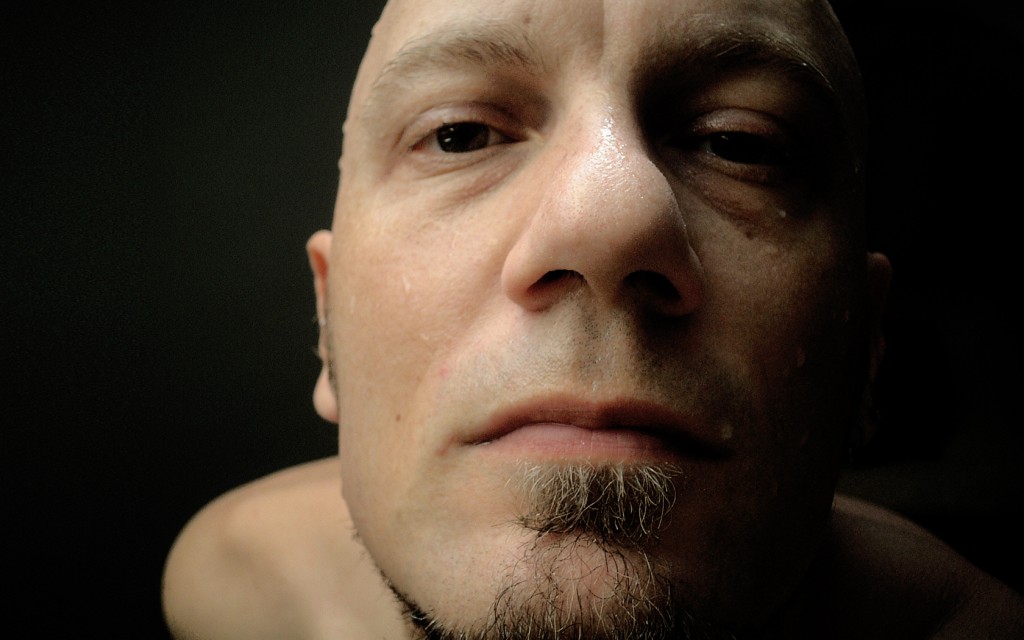
In discussion with Parker on “Boomerang” by The Creatures (1989).
Is your fascination with The Creatures tied to this album, or does it go back to the band’s origins? When did you first hear their music?
I was a fan of the Banshees from the beginning. There were only two Creatures albums and one EP during the twenty years of the Banshees. So they were special events and had a subtly different musical personality to the parent group. „Boomerang“ is the second Creatures album after a six year interval so I was very excited to hear how they would follow “Feast”.
Siouxsie Sioux and the drummer Budgie once conceived The Creatures as a side project from their activities with Siouxsie & The Banshees, but they regularly came back to it over the years. Originally the concept was to record music consisting just of her voice and his drums, which certainly still is the backbone of „Boomerang“, too.
At the time of the Creatures first EP (“Wild Things”, 1981) the idea of a pop record getting into the charts that was made purely with percussion and voice, was quite daring, innovative and very exciting. „Boomerang“ stays true to the original idea but takes it much further with lots of marimba and steel drums and some brass stabs every so often. Read the rest of this entry »
Posted: June 21st, 2010 | Author: Finn | Filed under: Features | Tags: Das Ding, Interview, Rewind, sounds-like-me.com, Traxx | 1 Comment »
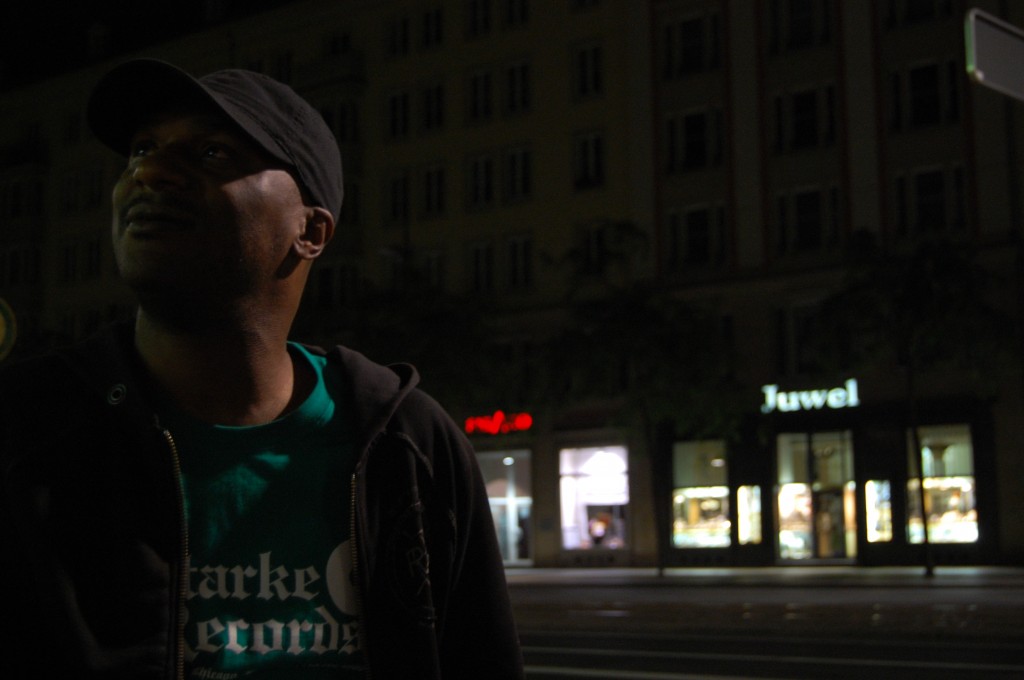
In discussion with Traxx on “H.S.T.A.” by Das Ding (2009).
How did you discover Das Ding? Were you aware of Danny Bosten’s productions before the reissue on Minimal Wave?
Tadd Mullinix (JTC) posted a video from Youtube of this group, that I thought I heard of before, but really couldn’t put my finger on.
I wasn’t aware of Danny Bostens’ productions until they came out on Minimal Wave. He released all his stuff on Tape-Cassette, and I’ve always been a vinyl head, so it must have slipped through.
What made you decide for this album? What makes it so important for you?
The music is just plain sick! And I really like the overall concept that doesn’t get stale. There is a poem on the back of the cover:
“The reassurance ritual has us actors in its play
a million times we repeated the words that we will say
and if its not tomorrow then it will be today
that words this way spoken will lead another way”
This pretty much covers everything that I like about this album. In our society things have a habit to repeat themselves over and over again. Be it fashion, art or music. Danny Bosten tried to break the borders of the genre that he was classified in back in that time. This is something that I can relate to, too. Read the rest of this entry »
Posted: June 7th, 2010 | Author: Finn | Filed under: Features | Tags: Angelo Badalamenti, Interview, Modyfier, Rewind, sounds-like-me.com | No Comments »
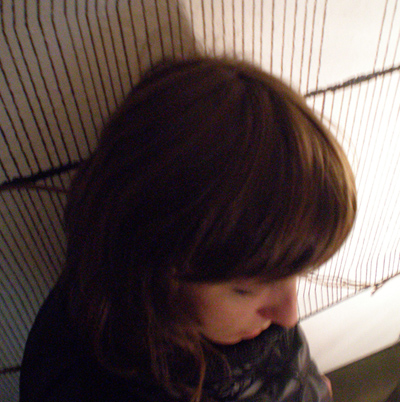
In discussion with Modyfier on “Twin Peaks” by Angelo Badalamenti (1990).
What was your first encounter with Angelo Badalamenti? Did you notice the music when “Twin Peaks” was originally aired?
It was when the first season debuted in the spring of 1990. I was eleven and used to watch the show regularly with my parents. It made quite an impression on me. It was around that time that I started to become aware of abstractions and my mind wandered into the incredible world of intangible things. The show was the perfect guide, pulling me further into this exploration. I’d like to say that I didn’t notice the music apart from the imagery (because together, I think they make up the show), but I can’t. The first season soundtrack (on cassette) was one of the earliest albums I ever bought. I loved the access the music provided. Listening to it, I’d immediately be transported to Twin Peaks.
Did you have the instant impression that your fascination with the soundtrack would outlast the TV experience as a singular work of art? Can it be held apart from the series?
“Twin Peaks” is best when experienced the way it was meant to be: as a moving picture with sound. While it is possible for each to exist without the other, they lack full form. For example, if you listen to the soundtrack on its own, it is constantly evoking imagery from the show. It reaches out for it, plucking it ripe from the memory branches of your mind. Badalamenti is successful in painting Lynch’s vision precisely with his composition.
As far as my ‘fascination’ with the soundtrack, I’d reiterate that I think it is best when listened to in the context of the show. For that reason, I don’t think it has outlasted the experience of the series. The characters and places have a dark beauty and frank oddity that are created as equally by Badalamenti’s music as they are by Lynch’s imagery and narration. For me, the soundtrack is so much more than merely associative. There is a symbiosis that makes me think cymatics are at play. When things are put into motion in “Twin Peaks” (when characters and places interact in different combinations) events begin to happen that are outside of the rational. A door is opened into an unexplainable dimension that is conveyed through the important combination of picture and sound. Read the rest of this entry »
Posted: May 31st, 2010 | Author: Finn | Filed under: Features | Tags: Interview, Justin Strauss, Kraftwerk, Rewind, sounds-like-me.com | 2 Comments »
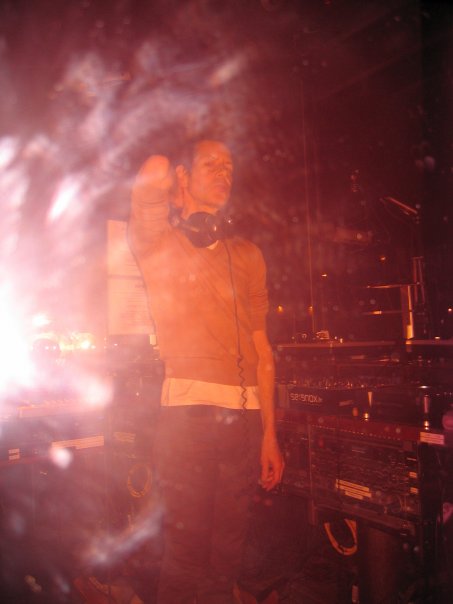
In discussion with Justin Strauss on “Computer World” by Kraftwerk (1981).
Can you still remember the first time you ever heard Kraftwerk?
Yes. I think the first time I heard them I was 17 years old, in England, recording an album for Island Records with the band I was in at the time, Milk n Cookies. I heard the song “Autobahn” on the radio there and remember thinking how different and cool it sounded than anything else out there. I bought a copy of the 7″ while I was there.
What made you decide for “Computer World” out of the many legendary albums? Do you agree with many critics and fans that they were at there creative peak with this?
Although I love all their albums, “Computer World” for me was just the best. Perfect in every way. I totally agree that this was their “masterpiece”. Read the rest of this entry »










Recent Comments